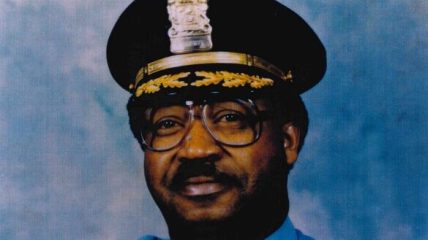Soul singer Timmy Thomas dead at 77
Thomas, who scored a No. 1 hit with his 1973 anti-war anthem, "Why Can't We Live Together," died Friday of cancer.
Soul singer Timmy Thomas, who scored a No. 1 hit with his 1973 anti-war anthem, “Why Can’t We Live Together,” has died at the age of 77, The New York Times reported.
Thomas’ song, which was his biggest release, was covered several times but was given a whole new life 42 years later, in 2015, with the Drake track that sampled it, “Hotline Bling,” alongside a colorful, fun video. The Canadian MC’s single, about a lovelorn lover dismayed that the one he wants doesn’t call anymore, skyrocketed to the top of the Billboard charts. The song reached No. 2 on its Hot 100 and No. 1 on its rap charts.

Thomas died Friday of cancer in a Miami hospital, his death confirmed by his wife, Lillie (Brown) Thomas.
Famed English band Sade closed their smash 1985 album Diamond Life with a memorable cover of “Why Can’t We Live Together,” and the song was also redone by an artists’ list that includes the legendary Santana, singers Joan Osborne and Steve Winwood, and the late jazz organist Dr. Lonnie Smith, featuring Iggy Pop.
In an interview with The Miami New Times in 2018, Thomas addressed the Drake sample, saying, “He had an opportunity to use Snoop Dogg beats, Dre beats, all these new beats. He went all the way back … and used my original.”
Thomas told the news outlet that he hoped to meet Drake. “I want to meet him one day and just give him a big hug and just say, ‘Man, thank you so much for giving me the opportunity to try to get my foot back in the door to try to teach these kids to be an asset instead of a liability,” he said. “That’s what my record was about. Why can’t we live together? No matter what color, you’re still my brother, or no matter what color, you’re still my sister.”
“Why Can’t We Live Together” was inspired by the Vietnam War, according to The Times, which wrote that in 1972, like most Americans, Thomas would watch the nightly news and be horrified by the number of deaths in Southeast Asia.
“I said, ‘WHAT?!’ You mean that many mothers’ children died today?” Thomas told Spin magazine in 2015, The Times reported in its obituary. “In a war that we can’t come to the table and sit down and talk about this, without so many families losing their loved ones?’ I said, ‘Why can’t we live together?’”
His single, which features a lengthy organ introduction and a surprisingly upbeat sound for an anti-war single, was in the spirit of other soul songs of the day. “What’s Going On,” by Marvin Gaye, had been released the previous year and captured the emotions of Black Americans who had loved ones dying disproportionately in Vietnam.
Born Timothy Earle Thomas on Nov. 13, 1944, in Evansville, Indiana, according to The New York Times, Thomas would later tell interviewers that he learned to play the organ growing up in the church where his father, Richard, was a minister. His mother, Gwendolyn, was a homemaker. After graduating high school, Thomas spent a week at a Stan Kenton summer music clinic, where he was fortunate enough to be taught by saxophonist Cannonball Adderley and trumpeter Donald Byrd.
He would go on to attend Lane College, where he graduated with a degree in music. He recorded songs for Glades Records out of Memphis, but his only big hit was “Why Can’t We Live Together,” which reached No. 1 on Billboard‘s R&B chart and sold more than a million copies.
Thomas went on to have a prolific teaching career and later became a mental health counselor.
Thomas is survived by wife Lillie, his daughters, Tamara Wagner-Marion and Li’Tina Thomas; his sons, Tremayne and Travis, plus three sisters, five brothers, 12 grandchildren and four great-grandchildren.
TheGrio is FREE on your TV via Apple TV, Amazon Fire, Roku and Android TV. Also, please download theGrio mobile apps today!
More About:Music












